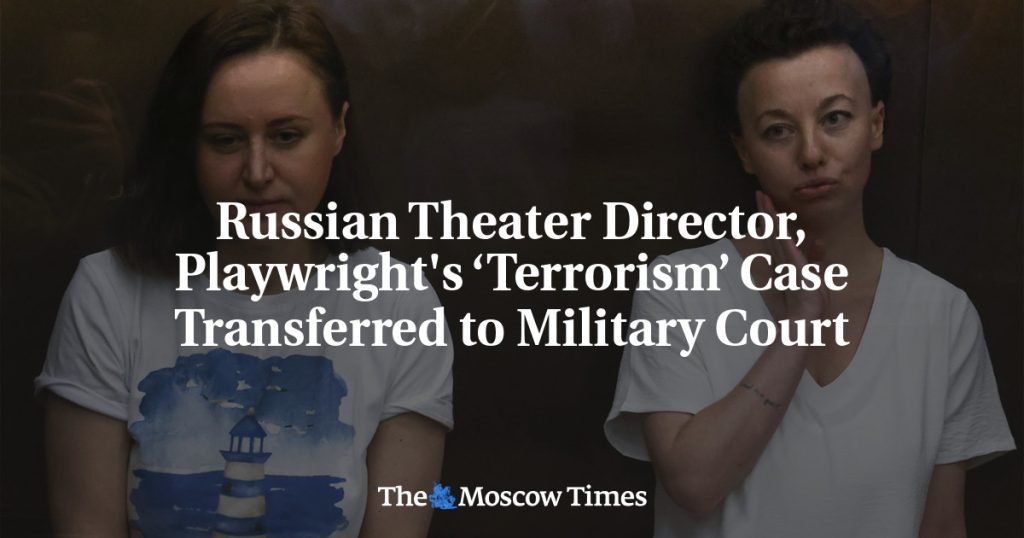The Russian military court will be hearing the case against theater director Yevgenia Berkovich and playwright Svetlana Petriychuk for their play “Finist the Brave Falcon,” which depicts Russian women falling in love with Islamist militants. The two were arrested in May 2023 on charges of “justifying terrorism” and are currently in pre-trial detention until at least May 4. If convicted, Berkovich and Petriychuk could face up to seven years in prison, according to the Moscow Prosecutor’s Office.
The prosecutors allege that Petriychuk wrote the script for “Finist the Brave Falcon,” which was found to contain signs of justifying and propagating terrorist activities through psychological and linguistic expertise. Berkovich and Petriychuk then jointly staged the play, which was publicly displayed at various festivals, theater organizations, and on the internet. The case has been handed over to Moscow’s Second Western Military Garrison Court, although the specific date for the hearings was not mentioned.
In response to the allegations, Russia’s state financial watchdog Rosfinmonitoring has added Berkovich and Petriychuk to its list of “terrorists and extremists,” giving authorities the power to freeze their bank accounts without a court order. This further complicates the situation for the two defendants as they continue to deny their guilt in the terrorism case. The decision by Rosfinmonitoring adds a new dimension to the legal battle Berkovich and Petriychuk are facing as they navigate the Russian legal system.
The play “Finist the Brave Falcon” has garnered attention due to its controversial subject matter and portrayal of Russian women falling in love with Islamist militants. While the play may have been well-received at various festivals and theater organizations, it has also sparked outrage and legal action against Berkovich and Petriychuk. The case highlights the complexities of freedom of artistic expression and political sensitivity when it comes to addressing terrorism and extremism in Russia.
The indictment against Berkovich and Petriychuk represents a broader crackdown on dissent and artistic expression in Russia under President Vladimir Putin’s government. Critics argue that the case is an attempt to silence voices that challenge the official narratives promoted by the Kremlin. The upcoming trial will be closely watched by human rights organizations and advocates for artistic freedom to see how the Russian legal system handles cases involving alleged terrorism justifications in artistic works.
As Berkovich and Petriychuk prepare to defend themselves in court, they are likely to face challenges in presenting their case against the accusations of “justifying terrorism.” The outcome of this case could have far-reaching implications for the freedom of artistic expression in Russia and raise concerns about the protection of artists and creators from government censorship. The trial will shed light on the intersection of art, politics, and national security in Russia and serve as a test of the country’s commitment to upholding fundamental human rights and civil liberties.


